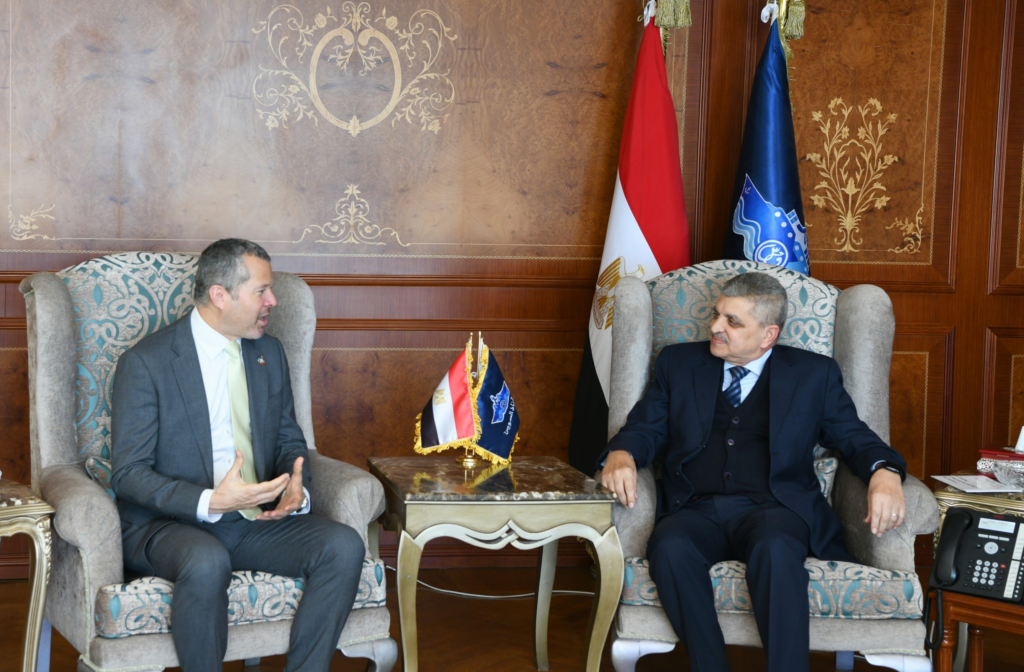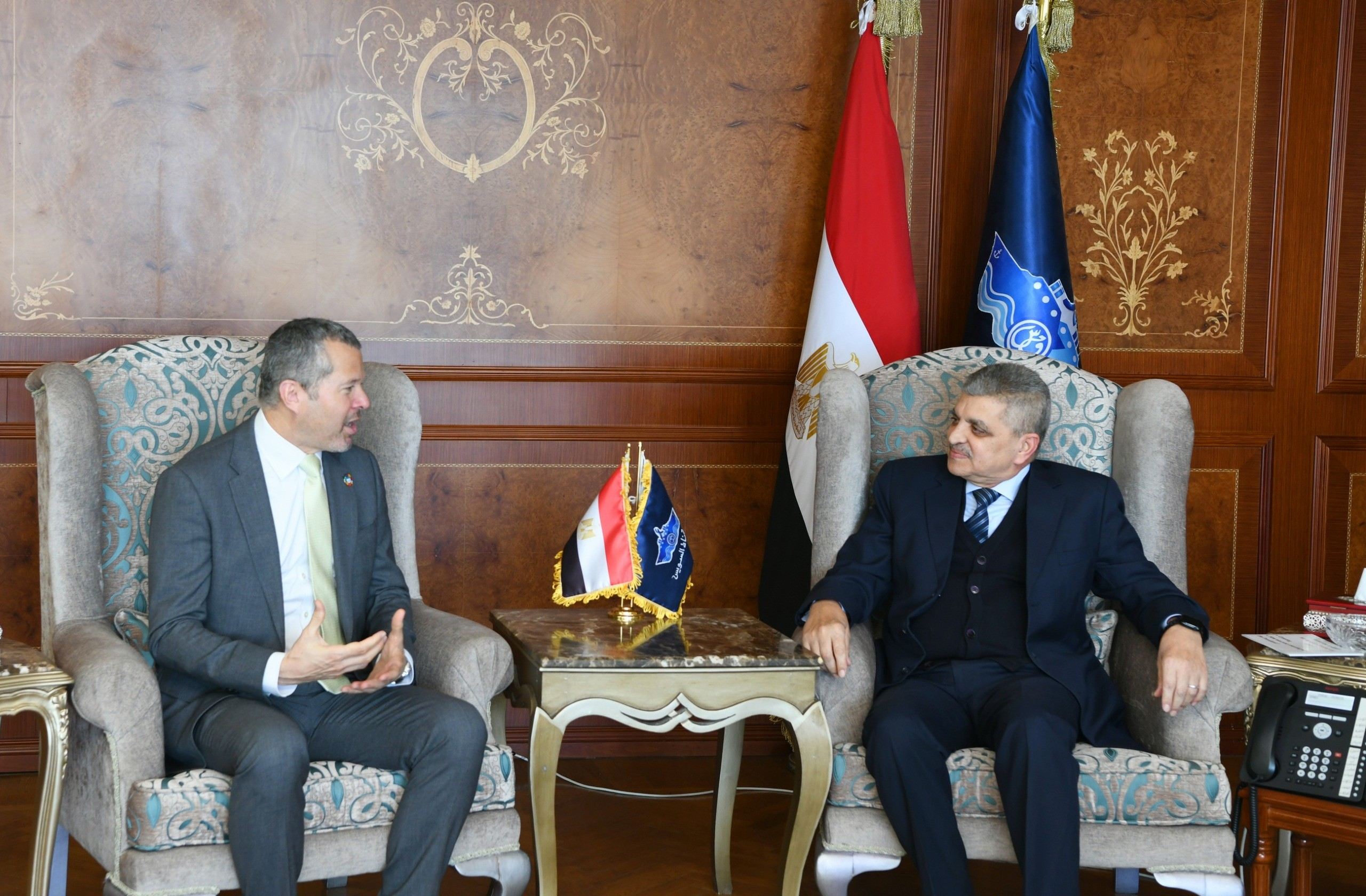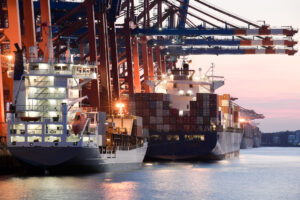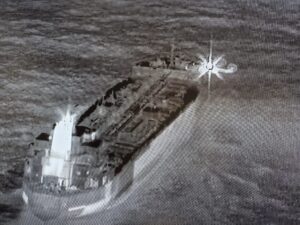
On the table of the discussion in yesterday’s meeting between the chairman of the Suez Canal Authority admiral Ossama Rabiee and the Secretary-General of the International Maritime Organization (IMO) Arsenio Dominguez, was the necessary executive procedures for the gradual return of the major shipping lines to the normal path through the Suez Canal.
At the meeting that was held at the authority’s headquarters at Irshad building in Ismailia Governorate, the Suez Canal chairman Rabiee said that the “Canal is ready to operate at its full capacity” as the major shipping lines return to transit through the canal.
In the light of the preparations for the gradual return of the global trade to its normal path through the Suez Canal, as the security situation begins to stabilize in the Red Sea region after the implementation of the truce agreement, the chairman stressed the operational readiness of the canal in order to accommodate the services of the major shipping lines.
The Secretary-General of the IMO, Arsenio Dominguez, said: “We welcome the beginning of the return of the Red Sea region stability and the subsequent gradual return of the navigation through the Suez Canal.”
The authority succeeded in developing new services, which were not provided previously, Ossama Rabiee said, such as ship repair and maintenance services, marine ambulance services, bunkering services, solid waste collection and disposal services, marine crew change services and other services.
The Suez Canal also intensified its efforts, during the past period, to increase the accommodation capacity of the canal by six to eight additional vessels and to complete the project of developing the southern sector of the canal’s waterway in both sides – to serve as an additional safety valve that contributes to the navigational safety in the canal and to the canal’s ability to confront emergency situations.
Admiral Rabiee emphasized that the Suez Canal has made significant progress in implementing its ambitious strategy to declare the Canal as a “Green Canal.”
“This is being achieved through the building of environmentally friendly marine units, converting several marine units to operate on biofuel, powering the pilotage stations along the Canal with clean energy, and introducing new services that support safe and sustainable disposal of marine waste,” the Suez Canal authority said in its statement.
From his part, Arsenio Dominguez expressed the organization’s welcome of the return of stability to the Red Sea and Bab al-Mandab region, which will lead to the gradual return of navigation through the Suez Canal. This will restore stability to global supply chains, which have been severely impacted in the past period.
Dominguez added that the Suez Canal is an indispensable global corridor for the international trade. He called on major shipping lines to reassess their navigation schedules in the coming period to facilitate their gradual return to the Suez Canal as security conditions in the Red Sea region start to stabilize.
Dominguez expressed his positive expectations that the navigation through the Suez Canal will gradually return to the normal level given that the alternative option of navigating around the Cape of Good Hope route lacks the fundamentals of a sustainable navigational route.
The IMO Secretary-General also praised the rapid developments taking place in the Suez Canal, particularly in the areas of waterway development and the modernization of navigational and logistical services.
These advancements align with the IMO’s vision of delivering safe, advanced, and environmentally friendly maritime services to the maritime community, Dominguez said, noting that during the upcoming period will jointly work with the Suez Canal to coordinate advanced training programs in combating pollution.



